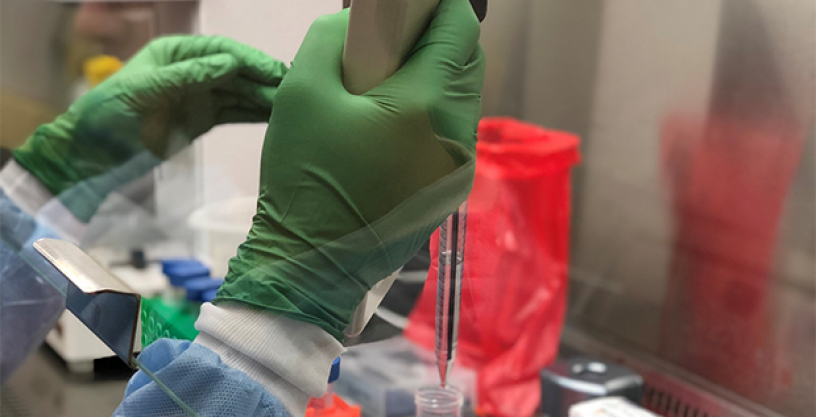
P3 Performer, AbCellera, receives U.S. FDA emergency use authorization for monoclonal antibody therapy developed with Eli Lilly and Company
Nov 10, 2020
DARPA’s Pandemic Prevention Platform (P3) program, launched in 2017, focuses on rapid discovery, characterization, production, testing, and delivery of efficacious DNA- and RNA-encoded medical countermeasures against infectious disease. This foundational technology pioneered by DARPA under the Autonomous Diagnostics to Enable Prevention and Therapeutics (ADEPT) program provides the body with instructions on how to immediately begin producing protective antibodies against a given threat. Just two years into a four-year program, P3 has performers at AbCellera Biologics, AstraZeneca, Duke University, and Vanderbilt University, all of whom have been able to quickly pivot to rapidly identify antibodies for COVID-19 in less than 90-days. This process traditionally takes several years to complete.
Yesterday, AbCellera announced that a human antibody identified as part of the P3 program and in conjunction with the National Institute of Allergy and Infectious Diseases (NIAID) Vaccine Research Center (VRC), bamlanivimab (LY-CoV555), had been granted emergency use authorization (EUA) from the U.S. Food and Drug Administration (FDA) for the treatment of patients 12 years of age and older with mild to moderate COVID-19. AbCellera was able to obtain a sample of blood at the end of February via an intergovernmental panel, and identified over 1,000 potential antibody candidates. They then began testing how well these antibodies bind to and neutralize the virus (to prevent them from entering human cells).
In May, AbCellera entered into an advanced development agreement with Eli Lilly, working together to assess the leading candidates for large scale manufacturing. From this work, the team was able to hone in on one antibody they felt would be best to take forward to clinical trials. In the end, the antibody product was able to proceed from sample to EUA in just over 8 months, a groundbreaking achievement in the development of antibody therapeutics.
“Through the P3 program, it’s incredibly rewarding to see how our performers have been able to accelerate antibody discovery and characterization,” noted P3 program manager, Dr. Amy Jenkins. “We’re proud to be able to make a positive impact on this outbreak.”
AbCellera announced in June that their DARPA-funded rapid pandemic response platform contributed to the world’s first clinical trial for a potential monoclonal antibody therapy that targets the SARS-2 virus, and further stressed the importance of the P3 program in their most recent announcements in August and November.
“For over sixty years, DARPA has held to a singular and enduring mission: to make pivotal investments in breakthrough technologies for national security,” added Dr. Victoria Coleman, DARPA Director. “DARPA explicitly reaches for transformational change instead of incremental advances, and the success of the P3 program is one impressive example of that.”
Image Caption Image courtesy of Vanderbilt University
# # #
Media with inquiries should contact DARPA Public Affairs at outreach@darpa.mil
Associated images posted on www.darpa.mil and video posted at www.youtube.com/darpatv may be reused according to the terms of the DARPA User Agreement.
Tweet @darpa
